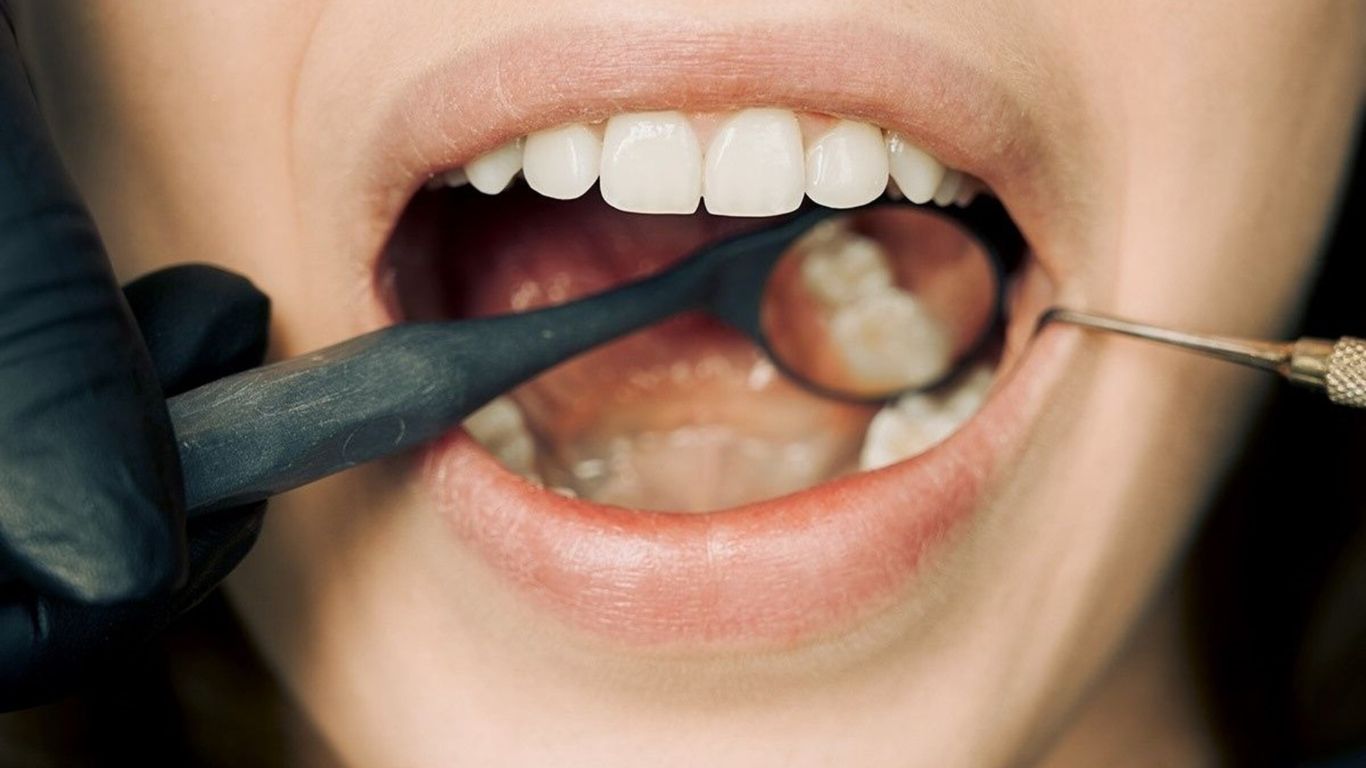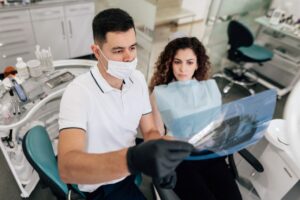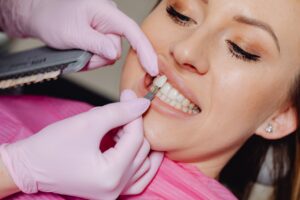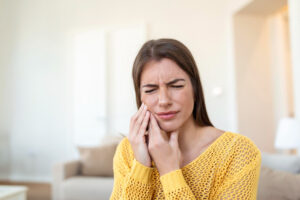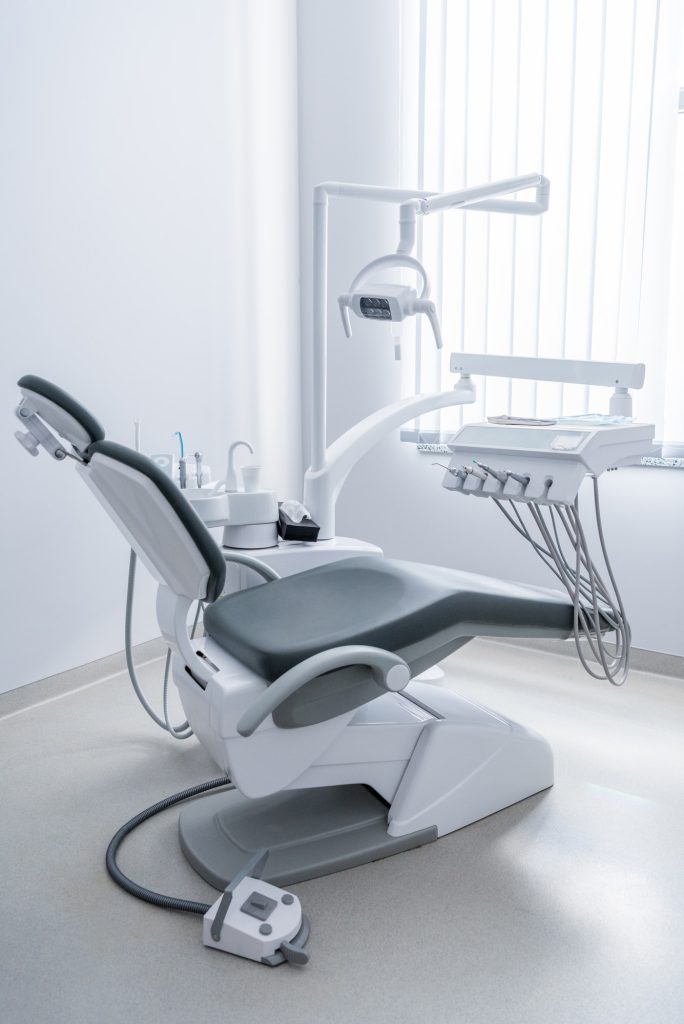Understand the causes, treatment options, and when to seek help for bleeding gums.
Have you noticed blood on your toothbrush or in the sink after brushing or flossing? While occasional bleeding may not be serious, persistent bleeding gums often signal an underlying issue that deserves attention. In this guide, we’ll break down everything you need to know, whether you’re experiencing this for the first time or dealing with ongoing symptoms.
What Causes Bleeding Gums?
Gum bleeding is not uncommon and can happen for several reasons. Some are temporary and easy to manage, while others may require professional care.
1. Gingivitis (Early Gum Disease)
The most common cause is gingivitis, a mild form of gum disease caused by plaque buildup along the gumline. Signs include:
- Red, swollen gums
- Bleeding during brushing or flossing
- Bad breath
If left untreated, gingivitis can progress into periodontitis, a more serious condition that can lead to tooth loss.
2. Improper Flossing or Brushing Technique
Flossing too aggressively or starting a new flossing routine can irritate your gums and cause bleeding. Similarly, brushing with too much pressure or using a hard-bristled toothbrush can cause trauma to the gums.
3. Plaque and Tartar Buildup
Inadequate oral hygiene allows plaque to harden into tartar, which irritates the gums and leads to inflammation and bleeding. Only a professional dental clean can remove tartar.
4. Hormonal Changes
Pregnancy, menstruation, menopause, or starting birth control can affect how your gums respond to plaque. These hormonal shifts increase gum sensitivity and the likelihood of bleeding.
5. Vitamin Deficiencies
Low levels of vitamin C or vitamin K can lead to gum problems. Vitamin C is essential for healing and immune function, while vitamin K helps with blood clotting.
6. Medical Conditions
Conditions like diabetes, blood disorders, and autoimmune diseases can make gums more prone to bleeding. If gum bleeding is persistent and unusual, it could be related to your general health.
7. Medications
Blood thinners, anti-inflammatory drugs, or certain seizure medications may increase the likelihood of gum bleeding. Always let your dentist know about your medications.
8. Smoking or Tobacco Use
Tobacco irritates gum tissue and reduces healing ability, making bleeding more likely.
When Should I Be Concerned?
While occasional bleeding is common, you should speak with your dentist if:
- Bleeding happens regularly or doesn’t improve after a few days
- Gums are swollen, painful, or receding
- You notice loose teeth or bad breath
- There’s bleeding without any brushing or flossing
These symptoms may point to periodontal disease or other health concerns that require immediate attention.
What Can I Do at Home to Prevent or Reduce Bleeding?
Most cases of bleeding gums can be improved with good daily habits and attention to technique:
Use a soft-bristled toothbrush
Brush twice a day using gentle, circular motions. Avoid hard brushing or sawing motions that damage the gumline.
Floss properly every day
Ease the floss gently between teeth and curve it around the gumline. Avoid snapping the floss directly into your gums.
Rinse with salt water or an antiseptic mouthwash
Salt water helps reduce inflammation, while mouthwash can lower plaque levels and bacteria.
Eat a balanced, vitamin-rich diet
Include foods rich in vitamin C (citrus, leafy greens) and vitamin K (broccoli, spinach) to support gum health.
Quit smoking
Smoking weakens your immune response and makes gum disease harder to treat.
Can Bleeding Gums Be Reversed?
Yes, especially if caught early. Gingivitis is reversible with proper care:
- Professional dental cleaning to remove plaque and tartar
- Improved daily brushing and flossing
- Regular dental check-ups every 6 months
More advanced gum disease (periodontitis) may require deep cleaning (scaling and root planing), antibiotics, or even gum surgery.
Will Bleeding Gums Go Away on Their Own?
If the bleeding is due to starting a new flossing routine or brushing a bit too hard, it may resolve in a few days. However, consistent bleeding is a red flag. Ignoring it can lead to more serious gum disease and potential tooth loss. It’s always best to have your dentist assess it early.
Can Orthodontic Appliances Cause My Gums to Bleed?
Yes, braces, wires, and other orthodontic devices can trap plaque around your teeth and gums, leading to inflammation and bleeding. Proper use of floss threaders or interdental brushes is essential to maintain healthy gums.
Can Bleeding Gums Be a Sign of Vitamin Deficiency?
Absolutely. Lack of vitamins C or K can weaken gum tissue and your ability to clot. If bleeding persists alongside fatigue or other symptoms, consider checking your diet or speaking to your GP
Should I Worry if My Gums Bleed Even Without Brushing?
Yes. Spontaneous gum bleeding especially without brushing or flossing can indicate advanced gum disease, blood disorders, or other health issues. If you notice unexplained bleeding, book a dental or GP appointment promptly .
How Dentists Treat Bleeding Gums
At Radiant Smiles Dental Bundoora, we begin with a thorough exam and professional cleaning. Depending on the cause, we may recommend:
- A tailored oral hygiene plan
- Gum disease treatment
- Lifestyle or dietary adjustments
- Coordination with your GP if a medical condition is involved
Our focus is on gentle and personalised care that gets your gums back to full health.
Bleeding Gums Are a Sign You Shouldn’t Ignore
While a little blood in the sink may not seem like a big deal, it’s your body’s way of saying something that needs attention. From plaque buildup to medical conditions, bleeding gums can have many causes but nearly all can be treated or managed when caught early.
Think your gums might need a check-up? At Radiant Smiles Dental in Bundoora, we’re here to help. Whether it’s a simple clean or a full periodontal plan, we’ll guide you with care, clarity, and comfort. Serving Bundoora, Macleod, Watsonia, Eltham and surrounding communities.

